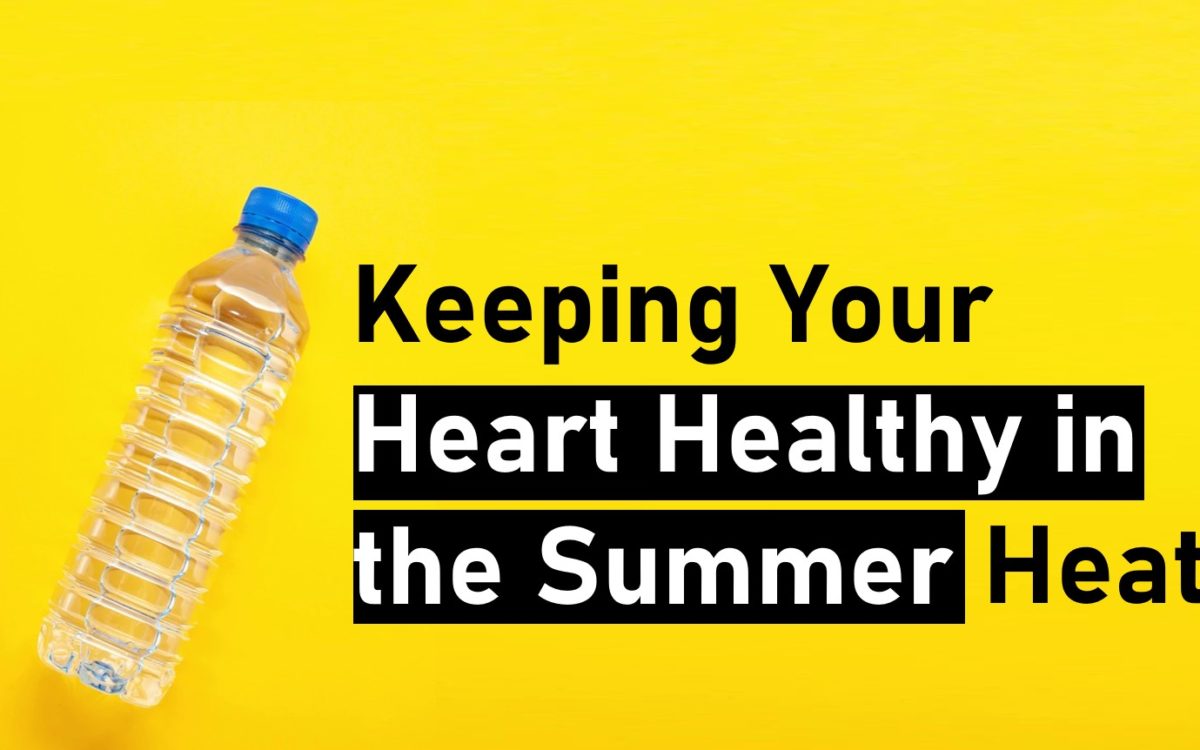Warm weather is finally here! And if you’re spending time outside, sunburn shouldn’t be your only concern: it’s important to think about heart health during the heat and humidity, too.
Your body rids itself of excess heat in two ways: by radiating warmth and by sweating. Both tactics demand extra energy from your heart!
HEART DISEASE IN THE SUMMER
For people who already have a weakened heart or have been diagnosed or treated for heart disease, that extra pumping of your heart can cause stress on the cardiovascular system. Heat exhaustion occurs when a person’s body fails to cool itself, causing symptoms like fatigue, nausea, headache, dizziness, muscle twitching, etc. If those symptoms progress, they can lead to heat stroke.
Another factor that happens during heat exhaustion is, blood pressure drops, which can be dangerous because it can cause people to become unsteady and even to fall or faint.
Don’t let the heat slow you down!
Here are some tips for how to safely stay active in the warm summer months:
STAY HYDRATED
Drink plenty of water throughout the day and before, during, and after any physical activities. Avoid consumption of caffeine products and alcohol as they can both increase dehydration. For some reasons, if you have been instructed to restrict your fluid intake, speak to your doctor.
SHAKE UP YOUR WORKOUT
Just because is summer, doesn’t mean you should not exercise. Change your workout timings like early morning or evenings, when the temperature is lower. You can also try cooler activities like swimming.
STAY INDOOR DURING PEAK SUN HOURS
Plan you daily routine, whether office work or personal work, so that you won’t have to sneak out when the sun is at the highest level of temperature. Spending too much time in extreme heat may lead to heat illnesses such as heat exhaustion or heat stroke.
DRESS FOR THE HEAT
Dress in light-colored, lightweight fabrics that ventilate easily and help to keep you cool. Breathable fabrics like cotton allow heat to escape.
EAT YOUR WATER WITHOUT FAIL
Fruits and vegetables are cold, light, easy to digest, and packed with water! Don’t overload your stomach with a heavy meal. Instead, eat small, plant-based meals. They provide you with some extra hydration.
KEEP AN EYE OUT FOR THESE DANGEROUS SYMPTOMS
If any of these symptoms present themselves, it is important to get out of the heat:
- Nausea or vomiting
- Dizziness
- Muscle twitches/cramps
- Fatigue
- Disorientation/confusion
- Cold, clammy skin
- Hot, dry skin
- Fainting
WRAPPING UP – TAKE IT EASY
Your heart has to work harder to dissipate the heat. Healthier people are better at adapting, but people with heart disease should go a little slower during the hot months with all your activities. Always be sure to ask your cardiologist about any concerns with your medications and how to cope with hot weather.
#IAmHeartHealthy – Prepare and protect yourself from the heat so you can stay heart healthy all summer long!











